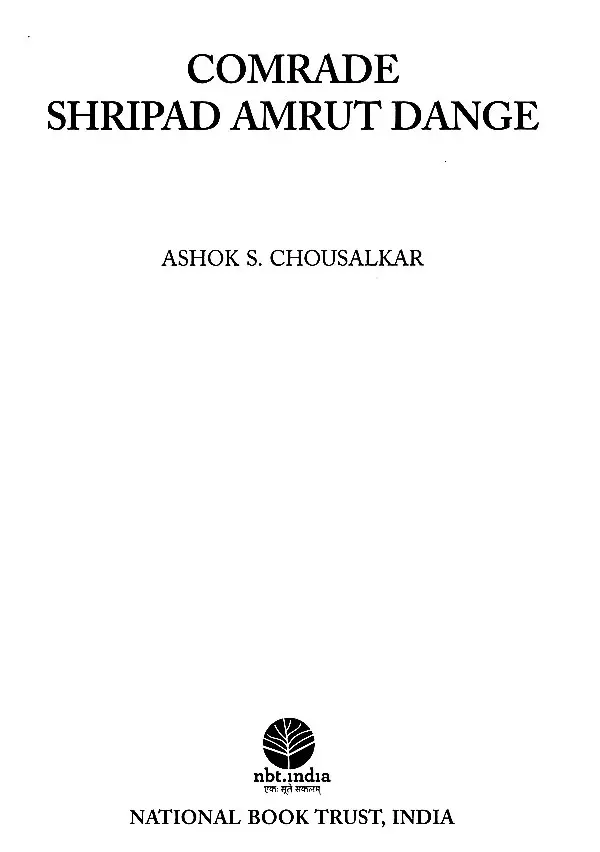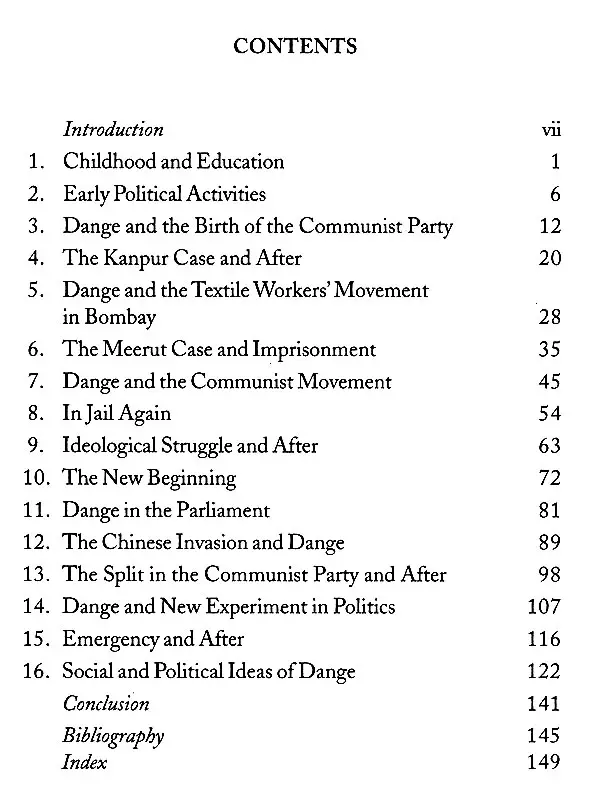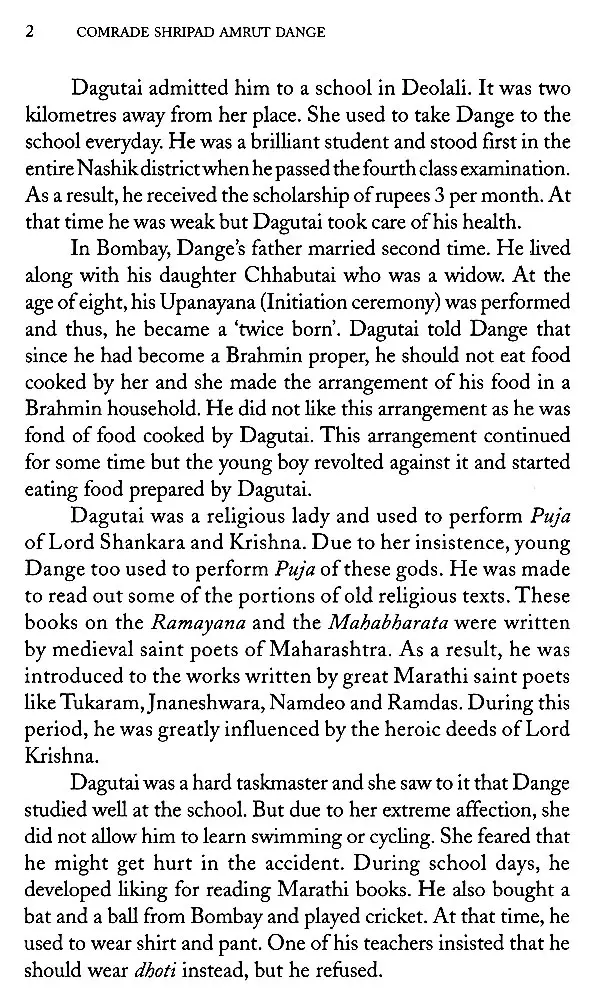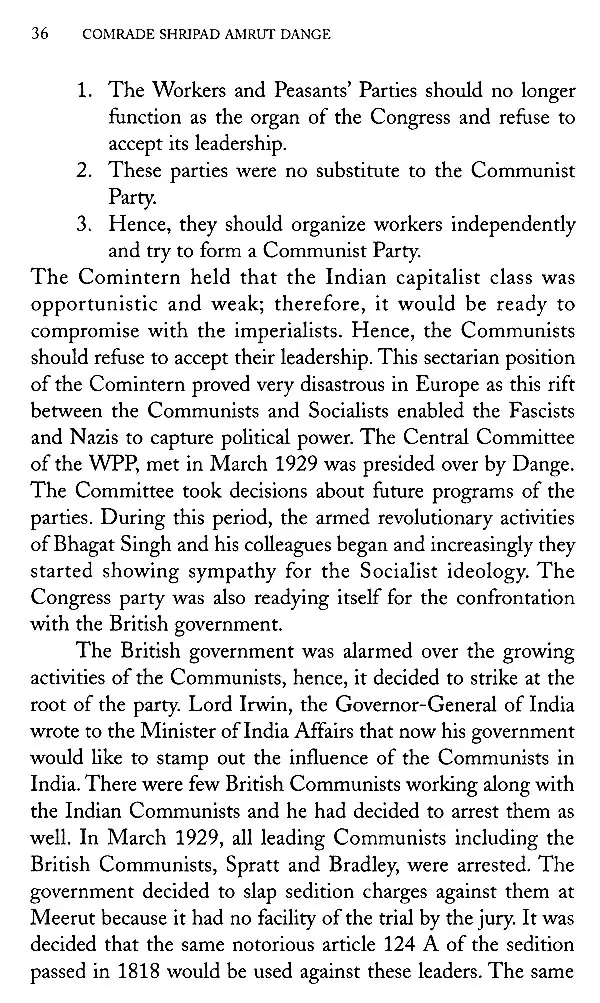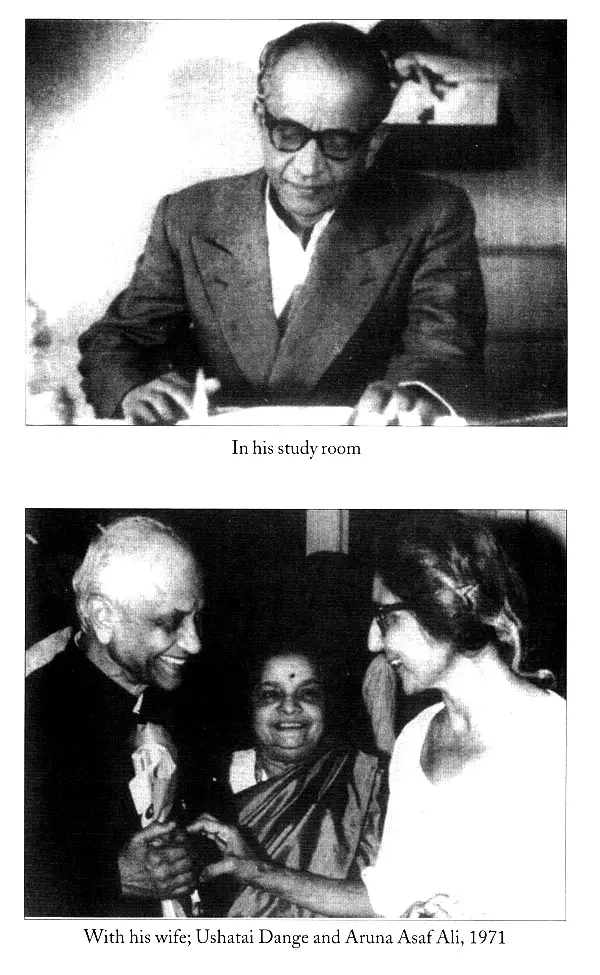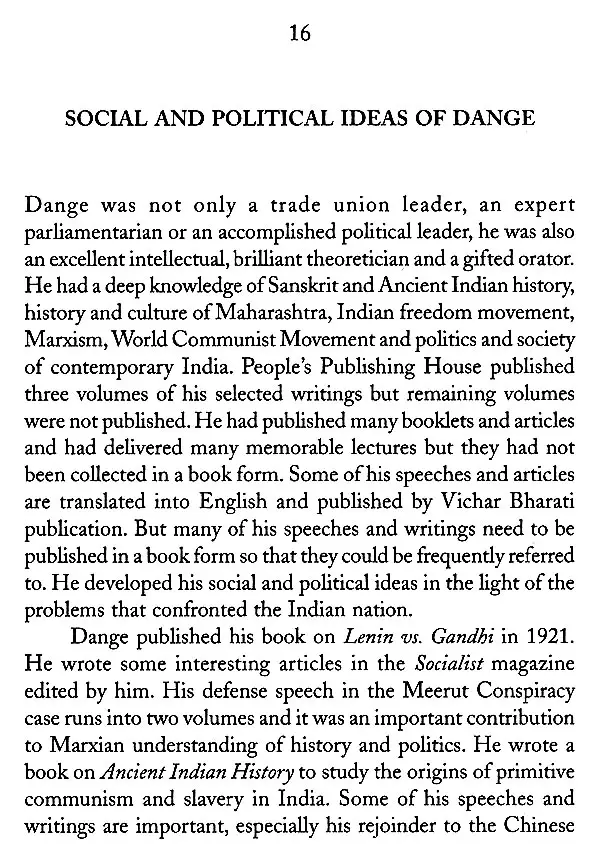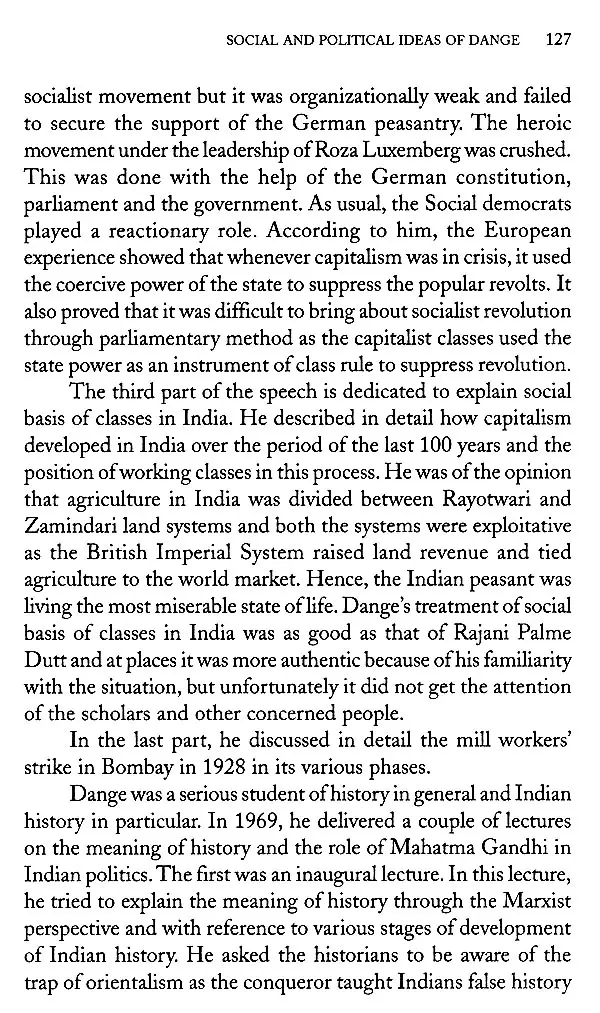
Comrade Shripad Amrut Dange
Book Specification
| Item Code: | UAF391 |
| Author: | Ashok S. Chousalkar |
| Publisher: | National Book Trust, India |
| Language: | English |
| Edition: | 2015 |
| ISBN: | 9788123773612 |
| Pages: | 156 (Throughout B/W Illustrations) |
| Cover: | PAPERBACK |
| Other Details | 8.50 X 5.50 inch |
| Weight | 250 gm |
Book Description
SHRIPAD AMRUT DANGE played a significant role in the Indian Communist movement as well as in the Trade Union movement. As a disciple of Lokmanya Tilak and Mahatma Gandhi, he took part in the Indian Freedom movement and was imprisoned for 13 years. He was instrumental in making textile mill workers of Bombay the strong arm of working class movement in India. A keen student of Indian history, culture and literature, he sought to understand early Indian history through the Marxist perspective. He did not favour blind imitation of the Soviet or the Chinese model of development and held that every country should evolve its own model of development with genius of its people.
Ashok S. Chousalkar is a retired professor and head, Department of Political Science, and also former director of Centre for Nehru Studies, Shivaji University, Kolhapur. In his long teaching and research career, he has written many books on Marxism, Indian politics, and also some biographies, both in English and Marathi. He has contributed a number of research papers and scholarly journals, for which he was honoured with some prestigious literary awards like Maharashtra Foundation award, Maharashtra State Government award, Maharashtra Association's Goenka award, etc.
In the history of Indian Communist movement, Comrade Shripad Amrut Dange has played an important role. He led the trade union movement for almost 40 years. He was a great freedom fighter who s spent 13 long years in the prime of his life in jail during the pre-independence period and another 4 years after independence. He was associated with the All India Trade Union Congress (AITUC) since its inception on 31 October 1920 and organized the Bombay textile mill workers under the banner of the Girni Kamgar Union. It was under his leadership that the textile workers fought many a memorable battle for various important causes. He was one of the founders of the Communist Party of India and went on to become its Chairman. He was closely associated with International Trade Union Movement and became the Vice-President of International Trade Union Congress. He was one of the most popular leaders of the CPI (Communist Party of India). He was twice elected to the Lok Sabha and distinguished himself as a great parliamentarian. He was an intellectual who wrote extensively on ancient and modern Indian history, world communist movement, language, literature and culture of Maharashtra and trade union movement. He was a gifted orator and fearless leader who led the workers from the front during the INA (Indian National Army) revolt in 1946.
Shripad Amrut Dange began his political career in 1920 as an ardent follower of Lokmanya Tilak and Mahatma Gandhi. In 1921, he wrote a book called 'Lenin vs. Gandhi' to make a comparative study of the political methods and ideas of the two leaders. Slowly, he came under the influence of the Socialist ideology and formed a group of like-minded friends. Later, he was closely associated with various activities of the CPI and the AITUC. Thus, his life goes parallel with the history of the Communist Party of India. In 1974, he received the prestigious Lenin award at the hands of the Soviet President Podgorny.
Dange had a mind of his own and at many times he stood his ground against his formidable opponents. It was his belief that the Indian Communists should take part in the Indian National Movement because imperialism was the principal enemy of the Indian masses. He understood the importance of Indian National Movement whose leaders like Lokmanya Tilak, Mahatma Gandhi and Pandit Nehru had deep roots in the masses. He maintained that due to weakness of the Indian Communist Movement, emancipation of the masses from capitalism and feudalism could not be achieved. He also pointed out that India could not blindly imitate the Soviet or the Chinese experiment of revolution as every country had to forge its own path of revolution appropriate to the genius of its people.
**Contents and Sample Pages**
